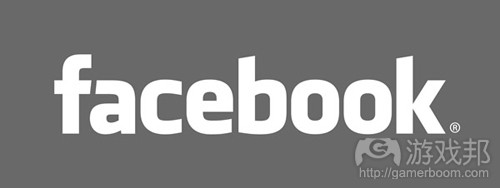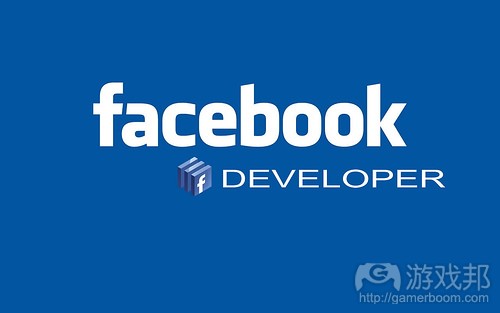为什么开发者纷纷离开Facebook平台?
作者:Andrew Chen
人们对Facebook平台的态度变了
最近,Bill Gurley发表了关于Facebook、iOS、Android和eBay等平台公司如何管理其生态圈的文章,非常有意义,我建议读者阅读一下。关于Facebook的部分,我有多处赞同作者的观点。最近在与硅谷的企业家交谈时,我发现大家一致认为Facebook已经不受新工作室的青睐了。
上个月,我甚至听到有一位知名VC这么说:
如果你的大部分受众来自Facebook,那就没救了。
遥想3、4年以前,人们争先恐后地开发Facebook应用、不择手段地与Facebook扯上关系,而现在,Facebook的地位已经一落千丈了。我记得曾经参观某个应用孵化基地的某个楼层时,主管骄傲地说:“这一层的员工都在开发Facebook应用。”所有人都认为Facebook大有可为,将成为网络上的“社交OS”。
然后呢?为什么开发者们开始讨厌Facebook了?
多种原因
以下原因解释了为什么开发者纷纷脱离Facebook:
1、病毒性传播力下降
2、广告费率升高
3、经常性更换工具
4、竞争
5、供应有限
6、手机平台的崛起
下文将详细说明这些原因,希望能给以后的平台一些借鉴,也希望Facebook能最终走出困境。以上原因我并非全部同意,但本着全面的精神,我还是打算逐条解释。
病毒性传播力下降
当Facebook刚刚出现时,它还是一片蛮荒之地。在这片新大陆上,你几乎想做什么就能做什么。我记得听说当时Facebook上有许多iLike插件,因为他们想到可以建立一个邀请页面,向所有预先选定的好友发送邀请,而接到邀请的人只需要点击OK。用户们四处散播好友邀请,该应用也飞速发展。但随之而来的是用户体验变差,所以Facebook完全有理由把那个功能关闭了,即使开发者仍希望保留它。Zynga和Viddy也是一样。
但现在,那些渠道都被关闭了,基本上是因为充分的理由。即使是一款非常优秀的应用也很难维持长期的病毒性传播力。许多去年还存在的渠道,今年就消失得无影无踪了,并且它们走了并没有换上替补。所以开发者们热情急剧衰退,转而在Techcrunch上发布手机应用,希望以此闯入iOS排行榜——这似乎对某些人仍然管用,并且已经引起开发者的关注了。
广告费率升高
关于Facebook(以及谷歌)的用户开发,一个说法是它具有自然的市场营销渠道(游戏邦注:分别通过供应和搜索结果)和付费渠道,同时将付费内容与自然材料混合起来。回首几年以前,Facebook的广告价值还没引起重视,许多公司疯狂地开挖自然和付费渠道。这是因为Facebook对建设他们自己的广告结构做了长远打算,让人投标出价,而不是在所有页面上使用AdSense。Facebook每月产生万亿页面访问量,所以结果是产生大量廉价的广告。许多开发者和广告商只需少量成本就能获得大量访问量,然后靠他们的虚拟产品或商业交易套利。
随着广告率上升,这种套利行为开始不管用了。并且因为病毒性传播力下降,每用户有效成本也上涨了,因为开发者也更难得到“免费”用户了。所以到2013年,很难靠套利行为获利了。在许多情况下,你可以把Zynga和Groupon看作靠Facebook的每月万亿页面访问量成功的套利大师。几年以前,他们能够买入1千万以上的用户,但现在,新用户开发更困难了,他们必须另谋出路。
经常更换工具
我曾听说一个玩笑说,开发者最害怕Facebook发来的邮件“Developer Love”,因为它提醒开发者,新的API出炉了,所以应用必须大幅更新了。Facebook宣扬一种受“快速革命”驱动的思想,可惜他们“革命”掉的某些东西正是他们的合作开发者的应用。为了跟上Facebook的步伐,开发者也必须大步前进。想看看他们发布新东西的频率有多高,看Developer Changes页面就知道了。
这种“革命”也意味着无论是这个平台上的什么应用,都会产生一笔维护费,因为必须让工程师放下手头上的项目,去为新的病毒传播渠道做一些维护和整合工作。这还意味着,今天能行得通的东西可能明天就失效了。当开发者正在做关于人事、商业模式、财政等的重要决策时,因为平台在几个月内发生变化,生意可能就此崩溃。
竞争
至少对于某些类型的服务而言,竞争是激烈的。Facebook确实考虑了产品的竞争问题以及平台的开放性问题。如果你跟从事短信、图片或步话应用的人讨论,你会从他们口中听到应用如何崩溃的过程。特别是,因为现在有这么多人从事手机应用,产品同质化就再所难免了。我听说Facebook不允许短信应用在他们平台做广告——不只是关闭API,事实上还拒绝接受广告生意。真是有意思。
供应有限
Facebook的许多推广问题都与供应有限相关。一个人在每次浏览时都只会看每个类别的前10或20条内容,这意味在某个类别放入任何东西都将把其他东西排挤出去。这就导致了各种各样的问题,因为用户在Facebook上花的时间越多,新活动也越多:
1、他们“喜欢”更多页面
2、他们添加更多好友
3、他们“关注”更多推荐
4、他们尝试更多应用
5、他们通过Facebook注册更多应用
……
所有这些都意味着他们的供应算法必须分类更多潜在的活动。不仅用户采取更多活动,而且有更多广告商购买的“推荐”和应用安装。所以,开发者面临着来自四面八方的竞争,这是一场零和游戏。这就导致营销渠道趋向饱和,使渠道的吸引力持续下降。
手机平台的崛起
最后,开发者的目光显然被手机平台吸引了,因为那才是孕育成功的新摇篮。你可能读过一篇关于Supercell最近的估值从1.3亿上升到7.7亿的文章。那么我们最近一次听说Facebook的类似消息是什么时候?现在还有投资商愿意资助“Facebook应用”吗?根据我与同行的讨论来看,手机领域仍然大有潜力,且仍然稳步发展中。
Facebook的未来在哪里?
Facebook平台在许多方面都曾经创造辉煌。除了Google,没有其他公司曾经给开发者提供这么多免费流量,并且几乎不求回报。所以我们不应该对它大发牢骚。这个平台诞生的数年后,风水轮流转,我们对此并不陌生。教训之一:让开发者高兴和创造良好的用户体验是两回事。类似地,让Facebook变成一个成功生意的东西并不是让开发者得到用户的平台。
Facebook还能重拾几年以前的辉煌吗?我认为答案是肯定的,但我觉得他们应该想一想他们的平台需要什么应用,如何让那些应用开发者成功,以及向我们证明这个平台的持续发展能力。微软是一个不可思议的平台,因为它把各种公司(尽管一旦哪家公司挖到金,微软就会把它驱逐出去)吸引到它的周边。我认为如果Facebook能让开发者和用户社区再次听到发生在这个平台的成功故事,人们就会恢复对它的信心了。但同时,不得不说的是,人们的注意力已经转向机遇更多的iOS和Android。(本文为游戏邦/gamerboom.com编译,拒绝任何不保留版权的转载,如需转载请联系:游戏邦)
Why developers are leaving the Facebook platform
by Andrew Chen
Originally posted at Andrew Chen’s blog.
Attitudes towards the Facebook platform have changed
Recently, Bill Gurley of Benchmark wrote a great piece on how platform companies like Facebook, iOS, Android, eBay, and others manage the ecosystem around them. It’s an important essay and I’d recommend you all read it. I found myself nodding my head as Facebook was discussed. In recent conversations with fellow entrepreneurs in Silicon Valley, it’s become a common belief that Facebook has become an undesirable platform for a startup to build their company.
Last month, I even heard one prominent VC even went so far as to say:
If your audience comes primarily from Facebook, that’s just uninvestable.
Ouch.
That’s a big shift from just 3-4 years ago when everyone was building Facebook apps and deeply integrating it into their products. I remember visiting a floor of an incubator where the head guy proudly said, “Everyone on this floor is working on Facebook apps.” And everyone thought that there was going to be a new thing, the “social OS” that was going to be the next layer of the internet.
So what happened? Why have developers soured on the Facebook platform?
Multiple factors in this analysis
The summary of the reasons why developers have increasingly left the Facebook platform for other platforms:
Lack of virality
Higher ad rates
Constant retooling
Competition
The feed is finite
Mobile platforms are the new sexy opportunities
This essay tries to elaborate on each of these reasons. Perhaps this will be educational for future platforms in how they work with developers, and hopefully Facebook will ultimately come to fix these issues. I don’t agree with all of these opinions, but in the spirit of comprehensiveness I’m going to document all the POVs I’ve heard.
Lack of virality
When the Facebook Platform first launched, it was the Wild West. You could do almost anything. I remember hearing that a lot iLike’s growth at the launch of the Facebook platform was because they figured out you could set up an invite screen with all your friends’ names pre-checked, and people would just click OK. It’d invite all of their friends, and the apps grew very fast. Turns out that sucks for UX, and it makes total sense for Facebook to turn that off, even if developers would rather have it there. Same with Zynga, and same with Viddy.
But now that those channels have all been dialed down, mostly for very legitimate reasons, it’s hard for even app that’s a “good actor” in the ecosystem to achieve sustainable viral growth. Many of the channels that existed last year no longer exist today, and they were taken out without replacements. So now that the excitement has faded, we’re back to launching mobile apps on Techcrunch and hoping to ride the iOS charts- that still seems to work for some people, and developers have started focusing there.
Higher ad rates
One way to view acquisition on Facebook (and Google, for that matter) is that there’s a organic marketing channel (via feeds and search results, respectively) and a paid channel, that blends paid content into the organic stuff. Back a few years ago, there was a ton of undervalued ad inventory on Facebook and a lot of companies went nuts on both the organic and paid channels. This was because Facebook took the long view in building up their ad infrastructure, and let people bid it up over time rather than sticking AdSense on all their pages. Facebook does a trillion pageviews a month, so it turns out there was a lot of cheap ad inventory. A lot of developers and advertisers were able to buy a ton of traffic cheaply, and arbitrage it against their virtual goods or ecommerce businesses.
That arbitrage began to fail as ad rates went up. And with decreased virality, the effective cost per customer also went up, because you were getting fewer “free” users as well. So now in 2013, that arbitrage is a lot harder to do profitably. In many ways, you can look at Zynga and Groupon as very successful one-time arbitrages on Facebook’s 1 trillion pageviews/month. They were able to buy 100M+ customers a few years back, but now that new user acquisition is much harder, they have to look elsewhere.
Constant retooling
I’ve heard the joke that the “Developer Love” email is scariest email you can get from Facebook, because it’s the one that tells you that your app needs to be substantially updated for a new set of APIs. Facebook has an amazing engineering culture driven by “Move fast and break things” but that means some of those things are often their developer partners’ apps. And you need to move as fast as Facebook to keep up. Just look at the Developer Changes page to see how often new things are released.
Part of this retooling means that there’s a maintenance tax on whatever app has been created on the platform, since you have to pull your prized engineers off their projects to do constant maintenance and reintegration into the new viral channels. That’s just to keep up. It also means that what works today may not work tomorrow. If you are making important decisions on staffing, business models, financing, then a lot of uncertainty is introduced because your business might get disrupted by platform changes happening in a few months.
Competition
It also turns out that at least for some categories of services, Facebook actually thinks about the competitive aspects of their product and it’s not just a completely open platform. If you talk with folks who are working on messaging or photos or even walkie-talkie apps, you’ll hear stories about how apps have been shut down. Turns out, especially because so many folks are working on mobile these days, that a lot of overlap gets created. I’ve even heard that Facebook isn’t letting some messaging apps buy advertising on their platform – not just turning off the APIs, but actually refusing to accept money for ads. Pretty interesting stuff.
The feed is finite
Many of the distribution issues on Facebook have to do with the fact that the feed is finite. A person will only look at the first 10 or 20 stories on any given visit, and anything you put into that grouping takes something out. This leads to all sorts of problems, because as users spend more time with Facebook, all sorts of new activity increases:
They “like” more pages
They add more friends
They “subscribe” to more celebrities
They try more apps
They sign into more apps with Facebook
All of this means that there’s more potential things their newsfeed algorithm needs to sort out. Not only are there more actions people are taking, but there’s more advertisers buying “likes” and app installs. You end up competing with everyone else for a spot on the feed, and it’s a zero-sum game, as Michael Dearing pointed out to me on Twitter. All of this leads to the marketing channel getting saturated, which I’ve written about in my essay Law of Shitty Clickthroughs, and makes the channel less attractive as time goes on.
Mobile platforms are the new sexy opportunities
And finally, the very obvious thing is that developer attention has shifted over to mobile because that’s where the new successes live now. You might have read, for example, of Supercell’s recent$130M raise valuing the company at $770M. When’s the last time we heard about that for a Facebook app? And how many investors are willing to fund “Facebook apps” now? In my conversations with people, there’s still a lot of perceived opportunity in mobile, and people feel like there’s enough stability.
What’s next for the Facebook Platform?
The Facebook Platform has been an amazing success, in a lot of ways. No other company, with maybe the exception of Google, has given away so much free traffic to developers while asking for very little in return. So let’s not all be whiners here. Years after the platform launch, a lot has evolved, and as a community we’ve all learned a lot. One of those lessons: What makes developers happy and what makes for a great UX are very different things. Same with what makes Facebook a good business, rather than a platform for developers to suck out users.
Can Facebook regain the excitement around the platform that they had years ago? I think the answer is yes, but I think they have to figure out what kinds of apps they want build up on their platform, and really make those partners successful. Show us the existence proof that you can build something big and sustainable on there. Microsoft was an incredible platform because it spawned multiple public companies that built upon them – regardless of the fact they’d chase you down once you proved there was a billion dollar opportunity ![]() I think if the developer and startup community starts hearing about big successes on Facebook again, people will try it out. But in the meantime, the attention has shifted to wear big opportunities are now, and that’s iOS and Android.(source:gamasutra)
I think if the developer and startup community starts hearing about big successes on Facebook again, people will try it out. But in the meantime, the attention has shifted to wear big opportunities are now, and that’s iOS and Android.(source:gamasutra)









































 闽公网安备35020302001549号
闽公网安备35020302001549号